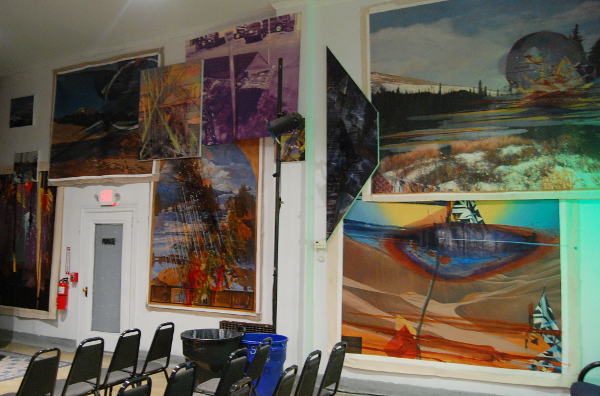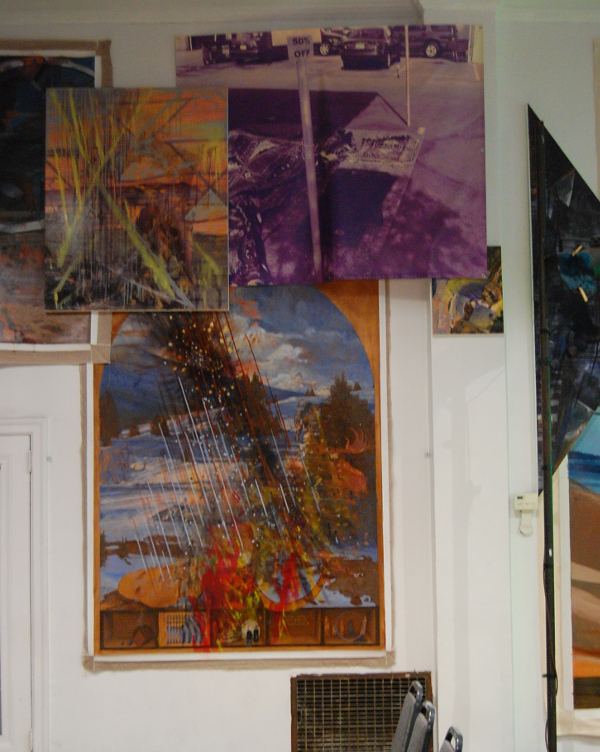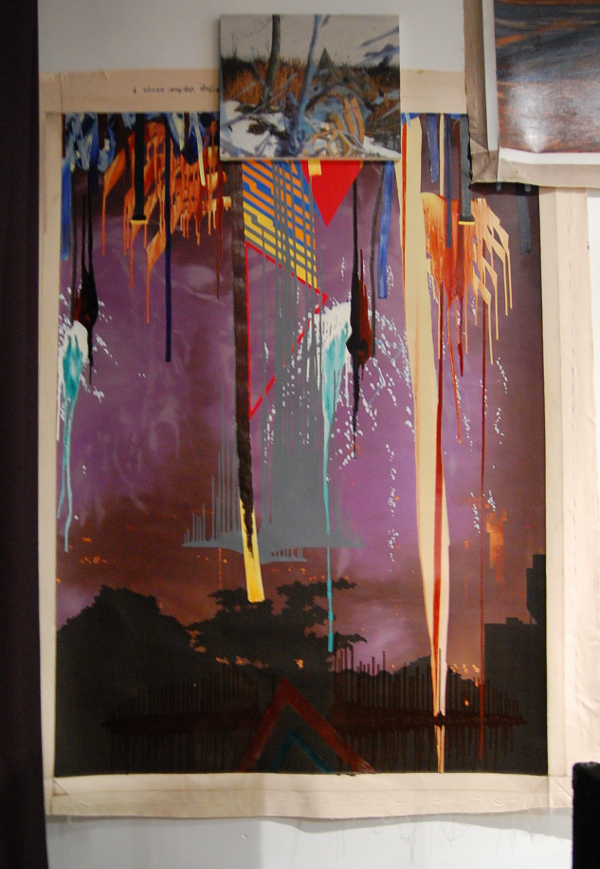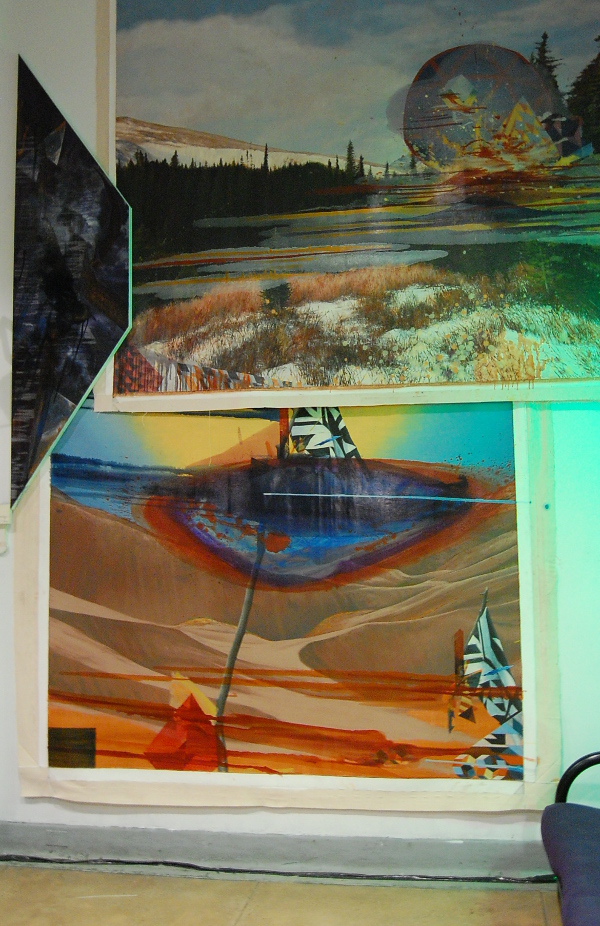
Jacob Feige reflects via commercial commentary at PhilaMOCA
Jacob Feige is having a sale, since he has a bit of a surplus on his hands. In fact, the entire 14-foot high wall of PhilaMOCA is awkwardly covered in his mostly large-scale (7-foot+) oil paintings for the show “Overstock,” which hangs in the former tombstone showroom throughout the month of February. If the exhibit looks a little disheveled and thrown together, don’t hold it against him. That was actually the idea.
An astute observer will notice that near the top and center of the fray, there hangs a freshly printed, violet-tinted banner that depicts a street sale of cheap Persian rugs. The tiny sign in the photo simply reads “50% OFF”. Like a carpet salesman with a glut of inventory, Feige splays his canvases out on the wall in a manner which seems hasty, if not desperately so. It’s as if these paintings he clearly spent so much time and energy on were suddenly only worth whatever cash PhilaMOCA’s attendees could scrounge up.
The center part of the lengthy installation with the purple “50% OFF” banner in clear view.
Of course, the orientation of the paintings here is meant to look slipshod and really involved a certain degree of aesthetic decision making. So why exactly would an artist whose career formerly found him exhibiting in New York City commercial galleries turn to such an unconventional method? Does he need quick money to fund a crippling drug habit? Is he finished with art altogether? Unsurprisingly, the motivation is indeed economic, but not necessarily in the same sense that it is to those peddling knockoff handbags or throw rugs. By imitating the salesmanship of these hustlers, Feige takes a subtle, yet scathing shot at the highbrow, high-priced world of contemporary art that he once called home.
The paintings in the exhibit are heavy-hitters on their own, crossing the boundaries between dark landscapes and pure abstraction, as well as cataclysmic concepts like extinction and climate change. But in “Overstock,” their content takes a back seat to their presentation. All of the largest canvases were at one time wrapped around wooden stretchers, as evidenced by their raw, unpainted edges and the creases permanently pressed into the cloth.
A closeup detailing the unpainted edges of some of the paintings.
When the paintings arrived at the venue curled around a giant tube like so many paper towels, it is because Feige had been storing them in his basement this way, not because it was an ideal place to keep them. Since a falling out with the gallery that represented his work, these pieces once feasibly fetching in the tens of thousands of dollars are now effectively worth nothing, and the cumbersome reality of their physical presence sinks in. Feige disagreed with what he perceived as the gallery’s unrealistic price tags, which led to his departure from the New York art scene.
In recent years, news (to some people) that NYC’s exorbitant overhead is prohibitive to working artists, writers and musicians has led to an exodus into more practical – and by no means culturally barren – locales like Philadelphia, whose creative community is, by all accounts, thriving. Feige now works as an artist, teacher and writer in Philly, and “Overstock” is his way of retrospectively examining his past life as a high-ticket painter.
Priceless (unpriced) paintings by Jacob Feige.
Quite interesting to note, there are exactly zero prices listed in the PhilaMOCA show. Perhaps Jacob Feige still has a bad taste in his mouth. Whether jokingly or not, the artist even mentioned bartering or artistic trades as compensation for his works, but commerce isn’t really the topic at hand. With this subversive exhibition, Feige seeks to undermine not just ideas of high art, but also his own compositions and sensibilities, which he describes as “aesthetically conservative,” by way of the chaotic and awkward appeal of a street vendor.
At once deeply critical and personally reflective, “Overstock” seems to be liberating for Feige and potentially anyone with reservations about the directions art and business sometimes take. Through a relatively basic reworking of artistic mores and commercial assumptions, Jacob Feige transforms his artwork, our expectations, and himself with scarcely a few inches of overlapping fabric.
There will be an opening on February 6 from 6-9 p.m. featuring Ben Reisman of the band Le Fits, and a selection from the new audio documentary, “Life in a Peaceful New World: A Story about the Trouble Books”.
PhilaMOCA is located at 531 N. 12th St., Philadelphia; [email protected]; philamoca.org.
Recent Content
-
Artsarticle ·
-
Artsarticle ·
-
Artsarticle ·



